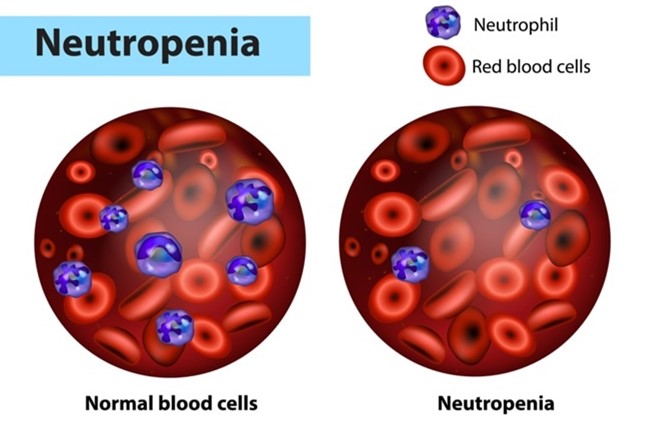A nurse is caring for a client who has prostate cancer and is receiving chemotherapy that causes anemia and neutropenia. The nurse should identify that which of the following drugs can be used to treat both conditions by stimulating the production of red blood cells and neutrophils in the bone marrow? (Select all that apply.)
Epoetin alfa (Epogen)
Filgrastim (Neupogen)
Sargramostim (Leukine)
Pegfilgrastim (Neulasta)
Darbepoetin alfa (Aranesp)
Correct Answer : C,D
Choice A reason:
Epoetin alfa (Epogen) is a drug that stimulates the production of red blood cells in the bone marrow, but not neutrophils. It is used to treat anemia caused by chemotherapy, chronic kidney disease, or other conditions.
Choice B reason:
Filgrastim (Neupogen) is a drug that stimulates the production of neutrophils in the bone marrow, but not red blood cells. It is used to prevent or treat neutropenia caused by chemotherapy, bone marrow transplant, or other conditions.
Choice C reason:
Sargramostim (Leukine) is a drug that stimulates the production of both red blood cells and neutrophils in the bone marrow. It is used to prevent or treat anemia and neutropenia caused by chemotherapy, bone marrow transplant, or other conditions.
Choice D reason:
Pegfilgrastim (Neulasta) is a drug that stimulates the production of both red blood cells and neutrophils in the bone marrow⁴. It is a longacting form of filgrastim that works in the same way but can be given less often. It is used to prevent or treat anemia and neutropenia caused by chemotherapy.
Choice E reason:
Darbepoetin alfa (Aranesp) is a drug that stimulates the production of red blood cells in the bone marrow, but not neutrophils. It is a longacting form of epoetin alfa that works in the same way but can be given less often. It is used to treat anemia caused by chemotherapy, chronic kidney disease, or other conditions.

Nursing Test Bank
Naxlex Comprehensive Predictor Exams
Related Questions
Correct Answer is ["A","E"]
No explanation
Correct Answer is D
Explanation
Choice A reason:
Blood pressure and pulse should be monitored before and during the infusion of trastuzumab, as this drug can cause cardiomyopathy and heart failure in some patients. These are serious side effects that can affect the heart's ability to pump blood effectively.
Choice B reason:
Respiratory rate and oxygen saturation should be monitored before and during the infusion of trastuzumab, as this drug can cause infusion reactions and pulmonary toxicity in some patients³. These are serious side effects that can affect the lungs' ability to exchange oxygen and carbon dioxide.
Choice C reason:
Temperature and skin condition should be monitored before and during the infusion of trastuzumab, as this drug can cause fever, chills, rash, and infection in some patients. These are common side effects that can indicate an allergic reaction or an infection.
Choice D reason:
All of the above assessments should be performed before and during the infusion of trastuzumab, as this drug can cause various side effects that can affect the heart, lungs, skin, and immune system of the patient. The nurse should also monitor for other signs and symptoms such as nausea, vomiting, diarrhea, headache, cough, sore throat, etc. The nurse should report any abnormal findings to the doctor and intervene as needed.
Whether you are a student looking to ace your exams or a practicing nurse seeking to enhance your expertise , our nursing education contents will empower you with the confidence and competence to make a difference in the lives of patients and become a respected leader in the healthcare field.
Visit Naxlex, invest in your future and unlock endless possibilities with our unparalleled nursing education contents today
Report Wrong Answer on the Current Question
Do you disagree with the answer? If yes, what is your expected answer? Explain.
Kindly be descriptive with the issue you are facing.
